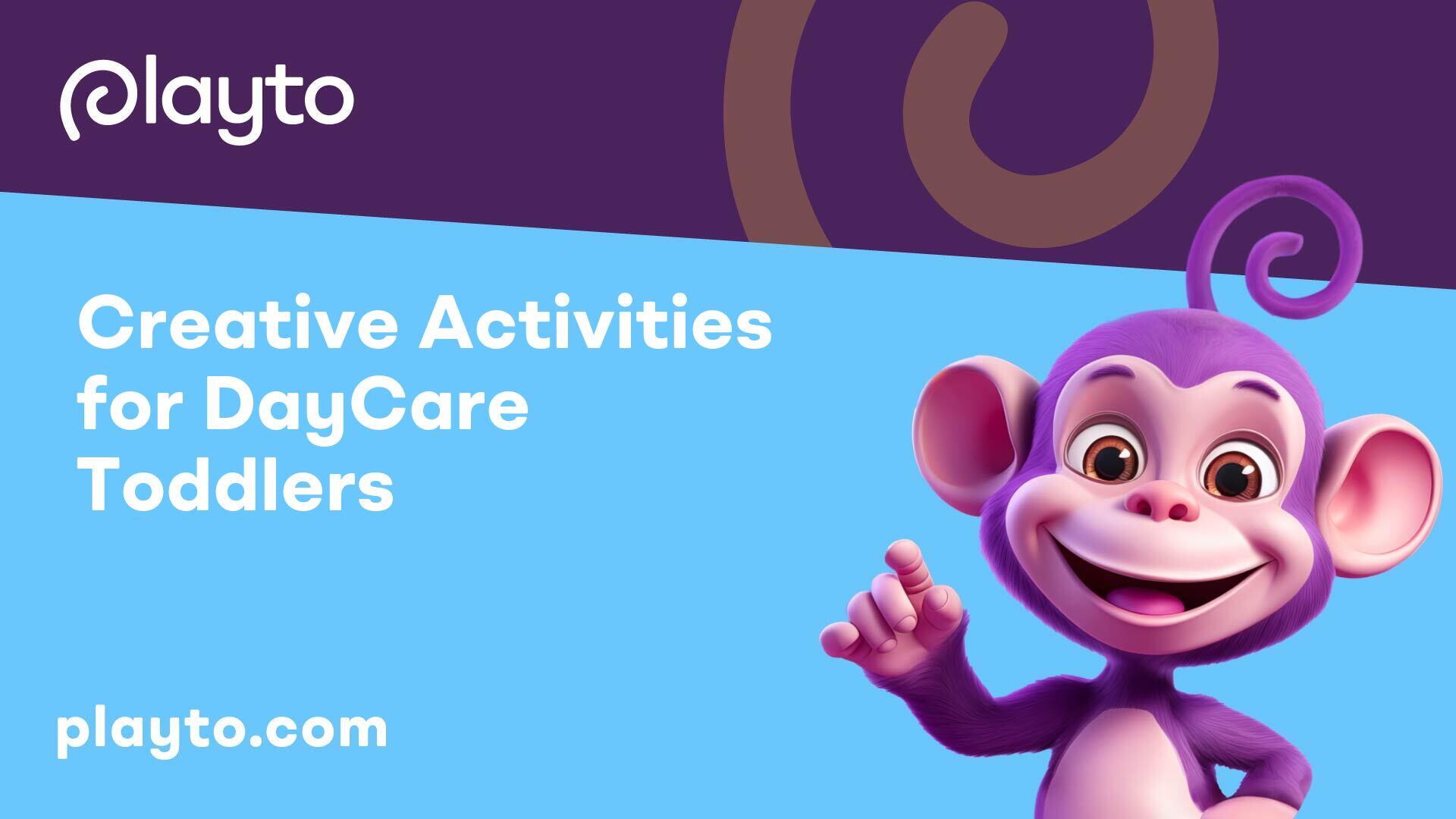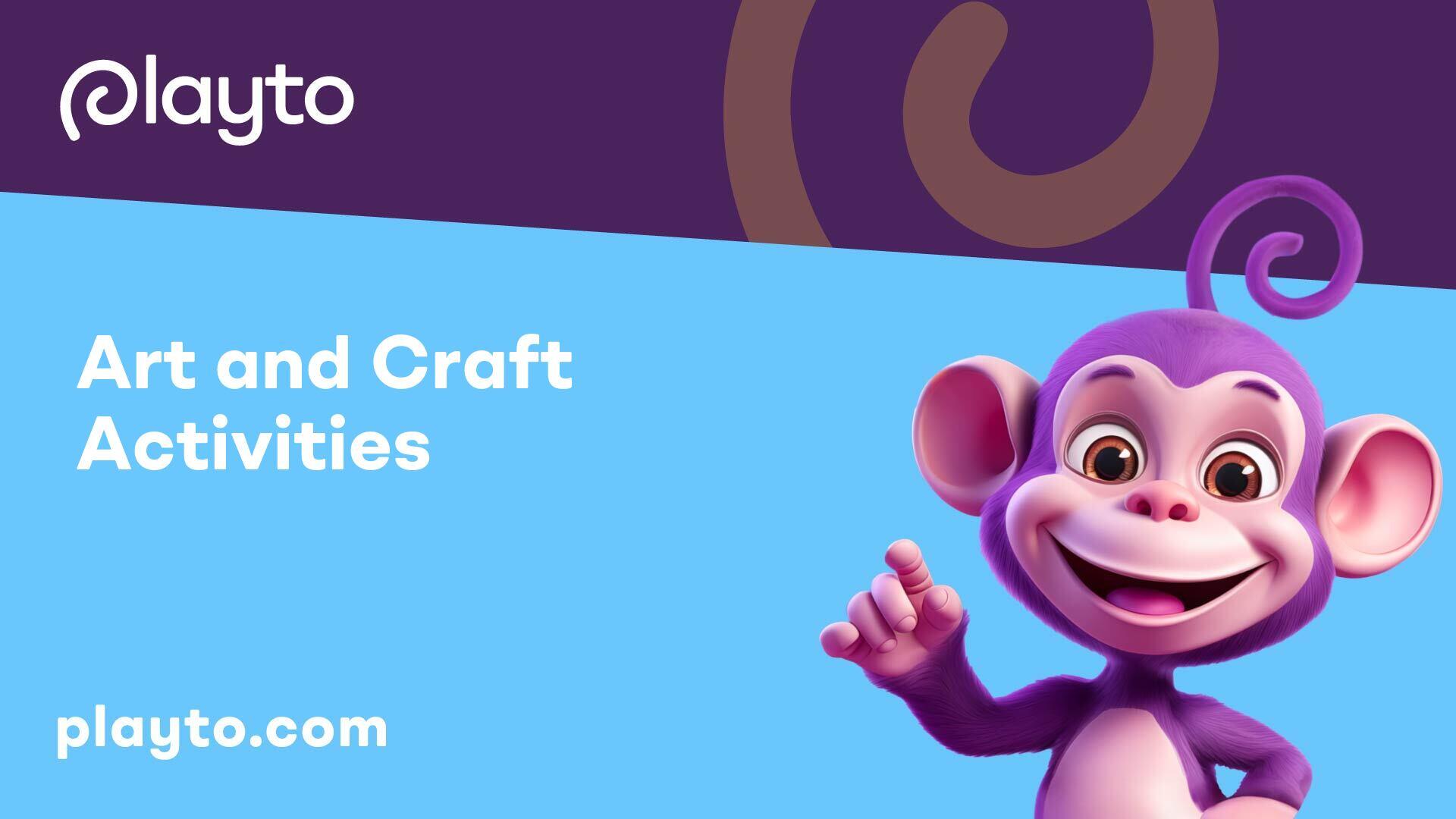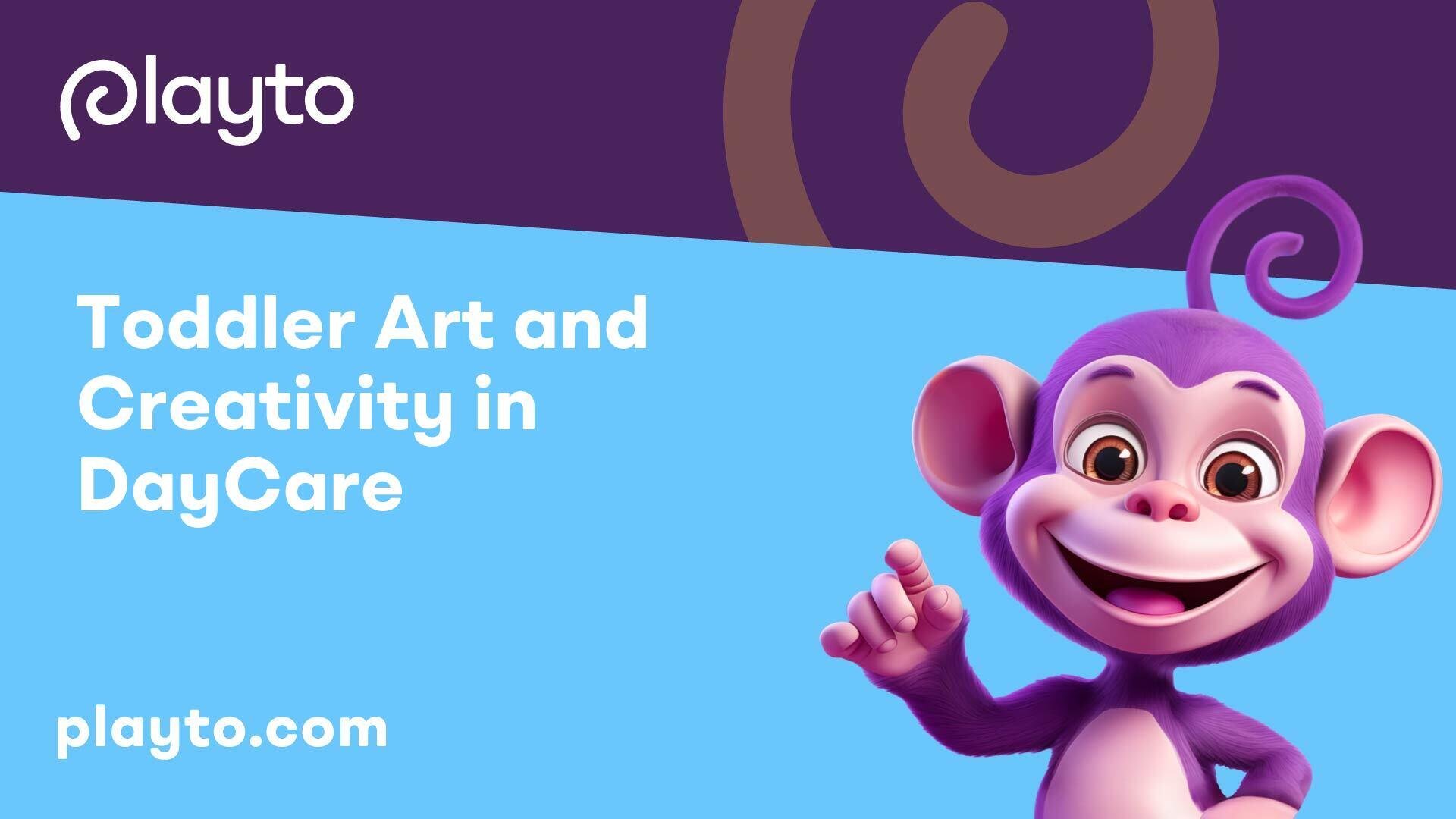
Creative Activities for DayCare Toddlers
Importance of Creative Play
Encouraging Creative Expression
Engaging toddlers in creative activities at daycare is not just about keeping them busy; it plays a crucial role in their overall development. Creative play is essential for toddlers as it helps them explore their imagination, express their emotions, and develop essential skills that will benefit them in various aspects of life.
According to the Raising Children Network, art and craft creative activities are particularly beneficial for toddlers to nurture their fine motor skills, express emotions, and encourage them to experiment with new ideas. These activities enable toddlers to learn through sensory experiences and hands-on exploration, laying a foundation for future learning and cognitive development.
Encouraging creative expression in toddlers is vital for their emotional well-being and self-esteem. According to Fiesta Crafts, engaging in arts and crafts projects helps children express themselves in new ways, which is essential for building self-esteem at a young age. By providing toddlers with various art materials and creative outlets, caregivers can empower them to communicate their thoughts and feelings effectively.
Encouraging creativity in daycare has numerous benefits that go beyond just artistic expression. It fosters physical, mental, and social development in young children, helping them cope with emotions, develop social skills, and build self-worth. Participating in creative activities positively impacts children's confidence, allowing them to experiment, explore new ideas, and experience a sense of accomplishment.
Sensory play is another crucial aspect of creative activities for toddlers in daycare. According to the Children's Museum of Sonoma County, sensory play engages a child's senses, promotes creativity, fine motor skills, hand-eye coordination, and self-expression. Activities like window painting and sensory play with homemade playdough not only nurture creativity but also enhance children's confidence and emotional well-being.
By emphasizing the importance of creative play and actively encouraging creative expression in daycare settings, caregivers can create a nurturing environment that fosters the holistic development of toddlers, allowing them to explore their creativity, build confidence and self-expression, and lay the foundation for lifelong learning and growth.

Art and Craft Activities
Engaging toddlers in art and craft activities is not only fun but also immensely beneficial for their overall development. These creative outlets provide toddlers with opportunities to explore their creativity, develop fine motor skills, and express their emotions. Let's delve into two popular art and craft activities for toddlers in daycare: painting and drawing, and playdough and sculpting.
Painting and Drawing
Painting and drawing are classic art activities that allow toddlers to unleash their creativity and imagination. Whether it's swirling colors on paper or making their first attempts at drawing shapes and objects, toddlers benefit greatly from these experiences.
Through painting and drawing, toddlers develop their fine motor skills by gripping brushes and crayons, enhancing hand-eye coordination, and refining their movements. These activities also encourage self-expression as toddlers depict their thoughts and feelings through art. Moreover, engaging in painting and drawing fosters cognitive development as toddlers learn to observe details, make choices, and experiment with colors and shapes.
To make painting and drawing sessions even more enjoyable and educational, daycare centers can provide a variety of art materials such as watercolors, finger paints, and large crayons. Offering different textures and tools stimulates sensory exploration and enhances the tactile experience for toddlers.
Playdough and Sculpting
Playdough and sculpting activities offer toddlers a hands-on experience that promotes sensory exploration and creativity. Manipulating playdough and shaping it into various forms not only entertains toddlers but also strengthens their fine motor skills and hand muscles.
By kneading, pinching, and molding playdough, toddlers enhance their hand strength and coordination, preparing them for future activities like writing and drawing. Sculpting with playdough also encourages imaginative play as toddlers create their own mini masterpieces, fostering storytelling and narrative skills.
Introducing different tools like plastic scissors, rolling pins, and cookie cutters during playdough sessions adds an element of excitement and novelty to the activity. These tools not only enhance the sculpting experience but also allow toddlers to experiment with different shapes and textures, stimulating their sensory perception.
Incorporating a mix of painting and drawing, along with playdough and sculpting activities, into the daily routine of toddlers at daycare provides a well-rounded artistic experience. These activities not only promote creativity and self-expression but also lay the foundation for cognitive and motor skill development in a playful and engaging manner.

Musical and Dramatic Activities
Engaging toddlers in musical and dramatic activities is not only entertaining but also educational. These activities play a vital role in promoting creative expression and cognitive development in young children. Let's delve into the enriching experiences of music and singing sessions, as well as drama and role-playing.
Music and Singing Sessions
Music and singing activities provide toddlers with a dynamic platform to explore their vocal abilities and rhythmic skills. Through interactive songs and rhymes, toddlers can enhance their language development and vocabulary. These sessions also aid in memory retention as children learn to recall lyrics and melodies.
Moreover, music has a powerful effect on emotions, helping toddlers express feelings and regulate their moods. Whether soothing lullabies or upbeat tunes for dancing, music sessions in daycare settings can energize or calm toddlers as needed [1].
Drama and Role-Playing
Drama and role-playing activities offer toddlers the opportunity to engage in imaginative play and explore various roles and scenarios. By pretending to be different characters or reenacting familiar situations, toddlers can develop their creativity and social skills.
Role-playing encourages toddlers to communicate, problem-solve, and collaborate with their peers. It fosters empathy and perspective-taking as children step into different roles and understand the world from various viewpoints. Through dramatic play, toddlers learn to express themselves, build confidence, and expand their understanding of the world around them.
Incorporating drama and role-playing into daycare activities provides toddlers with a safe and supportive environment to experiment, learn, and grow. It nurtures their cognitive, emotional, and social development, setting a strong foundation for their future interactions and creative endeavors.
Benefits of Process-Oriented Art
Engaging toddlers in process-oriented art activities within daycare settings offers a multitude of developmental benefits, including the enhancement of fine motor skills and the fostering of self-expression.
Enhancing Fine Motor Skills
Process art experiences, such as drawing, painting, and playing with clay or dough, play a pivotal role in supporting children's physical development by helping to develop small motor skills crucial for future tasks like writing. Art and craft projects involving paints, crayons, clay, and glue require children to use the small muscles in their hands and fingers, which are essential for activities such as writing, eating, and self-care. By engaging in these creative activities, toddlers strengthen their hand muscles, improve hand-eye coordination, and develop the necessary motor skills for writing and drawing.
Fostering Self-Expression
Creative activities, such as window painting and homemade playdough sensory play, not only enhance fine motor skills but also encourage self-expression and boost children's confidence and emotional well-being. Through art experiences, toddlers have the opportunity to explore their creativity, communicate their feelings, and express themselves in a supportive and nurturing environment. This process of self-expression through art fosters emotional development and helps children build confidence in their abilities.
By prioritizing process-oriented art in daycare settings, caregivers can provide toddlers with valuable opportunities to develop essential skills while allowing them to freely express themselves through creative endeavors. These activities not only support fine motor skill development but also nurture emotional intelligence and self-esteem in young children.
Culturally Responsive Daycare Environments
Creating a culturally responsive environment in daycare is crucial for fostering a sense of belonging and inclusivity among infants and toddlers. By incorporating inclusive art materials and reflecting diversity in art, caregivers can provide enriching experiences that resonate with children from diverse backgrounds.
Inclusive Art Materials
Utilizing inclusive art materials in daycare settings is essential for supporting children's self-expression and cultural identity. These materials should represent children's backgrounds, experiences, and cultures, allowing them to express themselves authentically and feel a sense of representation within the learning environment.
Incorporating culturally responsive materials enables children to share their knowledge, learn new skills, and find aspects that are familiar and meaningful to them in their daily artistic endeavors. By embracing a variety of materials that reflect the interests and backgrounds of the children in daycare, caregivers can create a supportive space where every child feels valued and respected.
Reflecting Diversity in Art
Reflecting diversity in art plays a significant role in nurturing a positive and inclusive daycare environment. Artwork that showcases diverse cultures, traditions, and perspectives not only celebrates differences but also encourages children to explore, appreciate, and respect various ways of life.
Caregivers should provide opportunities for toddlers to engage with art that represents a broad range of cultures, ideas, and experiences. By exposing children to diverse art forms, they can expand their worldview, develop empathy, and cultivate a deeper understanding of the world around them.
By embracing inclusive art materials and reflecting diversity in art, daycare environments can become enriching spaces that honor the uniqueness of each child and foster a strong sense of community and belonging. Caregivers play a vital role in cultivating an environment where all children feel valued, respected, and empowered to express themselves creatively while celebrating the rich tapestry of cultures present in the daycare setting.
Creating Supportive Art Spaces
In a daycare environment, creating supportive art spaces plays a crucial role in nurturing toddler art and creativity in daycare. By displaying children's art and structuring art experiences appropriately, caregivers can enhance children's self-expression and build their confidence in their creative abilities.
Displaying Children's Art
Displaying art in daycare settings serves multiple purposes beyond just showcasing creativity. It allows children to share their creative work with others, fostering a sense of pride and accomplishment. When children see their art prominently displayed, it helps instill a sense of value in their work.
To create a supportive environment for children's creative accomplishments, consider incorporating nameplates next to each art piece. These nameplates should showcase the child's name and the title of their piece, providing recognition for their efforts and enabling others to appreciate and acknowledge their work. This simple gesture can go a long way in building children's self-esteem and encouraging further artistic exploration.
Structuring Art Experiences
When organizing art activities for toddlers in daycare, caregivers should prioritize process-oriented experiences over product-focused ones. Process-oriented activities are characterized by being child-directed, open-ended, and focused on the experience itself.
By promoting process-oriented art experiences, children are encouraged to explore materials, express their creativity, and engage in free-form artistic expression. This approach not only nurtures their creative skills but also helps them understand cause and effect. Through experimentation and hands-on exploration, children can develop their artistic abilities while honing problem-solving and critical thinking skills.
Creating a structured yet flexible art curriculum that allows for individual expression and creativity can lead to meaningful and enriching experiences for toddlers in daycare. By fostering a supportive art environment that values each child's unique perspective and encourages artistic exploration, caregivers can play a significant role in nurturing children's creativity and self-expression from an early age.
References
[2]:
[3]:
[4]:
[5]:
[6]:
